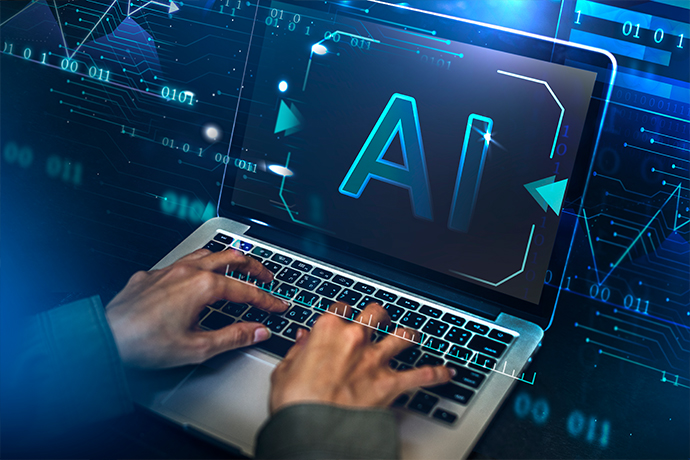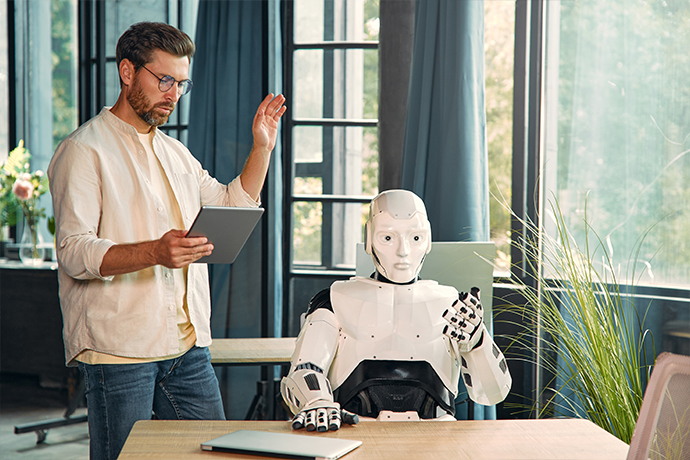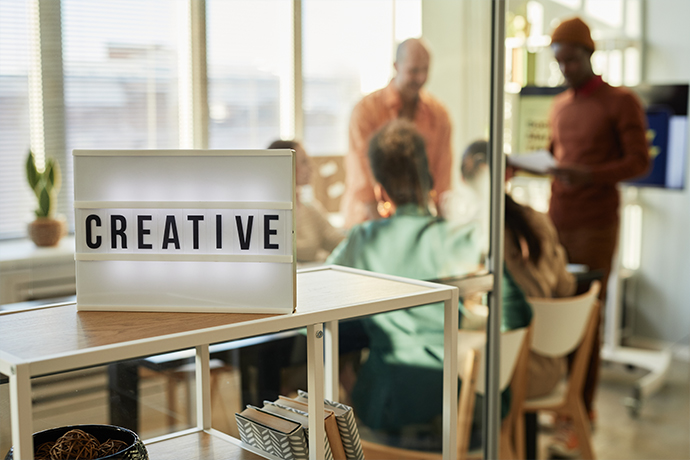 SPEAKERS
SPEAKERS
 TOPICS
TOPICS
Technology is evolving rapidly, bringing us comfort and convenience. One notable advancement is Artificial Intelligence (AI). We all use AI in some form. It's now integral to almost every industry, from simple tasks to complex operations.

Technology is evolving daily to become more advanced and improved. Very new technology brings us comfort and convenience. One such technology that has been making headlines for some years is AI or Artificial intelligence. Admit it; we all use AI in one way or another. Currently, AI has penetrated almost every industry, from performing simple tasks to handling highly complicated commands.
One such industry witnessing significant AI impact is the creative industry. AI capability in advanced graphic design and music and replicating artists' voices have created a lot of fear in the industry.
However, before believing all the speculations and assumptions, let’s understand the potential and limitations of artificial intelligence in the creative industry.
Keeping aside the fears of the creative professionals, artificial intelligence is bringing a lot of opportunities for them to bring more creativity and higher productivity in their work. Let’s know how AI can help artists in the creative world.
With all these generative systems, you can create content based on the prompts provided. This gives an opportunity to artists to explore new avenues in the art field. It also saves artists time and energy spent in the process of creating such unique content.

Creative professionals are already using AI as a way to enhance and augment their capabilities. Here are some areas where AI has been extensively used in the creative industry.
With AI, now it is possible that an artist will only give the necessary prompts and AI will create an out-of-this-world image in no time. Whether it's concept images for video games or some photorealistic tasks, AI has proved its ability to create some mind-blowing imaginative pieces.
However, at the same time, we need to understand that an artist's role can’t be ignored here. Only a human artist can refine the AI output to add that depth and creativity. AI works based on the patterns and data available and its aesthetic value is still confined.
Graphic design is a platform that combines art, communication and technology together. AI has become very advanced in the graphic designing world in order to create visually attractive images. With automated graphic designing tools, artists can not only generate designs but also analyze data and assist in monotonous tasks.
One such prominent example in this field is Canvas design AI. The design AI can suggest color combinations, design elements and different layout options based on your preferences and trends. However, for a personal touch, human intervention is a must.
While acting is a profession based on human emotions, expression and behaviors, AI can definitely assist in generating scripts and writing dialogues required in acting; all thanks to generative AI like ChatGPT-4. Also, based on the data and feedback available for scripts, performance and films, AI can help you generate new ideas.
Additionally, industries have also been leveraging AI to create virtual actors for films and video games based on audience feedback for a more immersive experience. However, these virtual actors and their AI performances can never compete with the nuance and spontaneity that human skills bring.
Musicians have also been using modern AI tools to generate new harmonies and unique melodies. Music composers are getting new ideas and inspiration through these tools.
The AI impact on jobs in the creative industry is a bit complicated. Due to its multifaceted nature, we cannot derive one conclusion. As already discussed above, AI and creativity of artists go hand in hand. A lot of AI tools are helpful in augmenting the artists’ work and creating some unique art forms, but the emotional depth and creativity that comes with the personal experience of the artists cannot be ignored.
However, at the same time, it is also speculated that automation of certain tasks in the art, design, media and photography industry can lead to job losses in the future. However, according to the experts, rather than leading to job losses, the nature of the creative jobs will vary. Some jobs will evolve while some will wither away completely.
Looking at another aspect, there is a possibility of an era when creative industries will look for more human-made creative art. This will happen when AI generated content will become more prevalent everywhere. A thirst for the original, authentic art form with human touch will increase the demand for premium artists. So, the artists who have different ideas and new ways of doing the same things that AI can’t do will get more jobs.
Along with productivity gains and improved creativity, AI also brings issues like data privacy, inaccuracy and copyright infringement. It will be very difficult to handle such issues and maintain a balance between AI-driven content and artistic integrity. Artists must consider such ethical considerations; otherwise, AI will have a negative impact on business overall.
We need to understand the fact that though AI can be faster, more creative, and productive than humans, it's we, the humans, who have made it. How much, where and for what we need to implement AI in any industry must be a decision taken by workers, society and corporate executives together.
The creative professionals will need to learn, adapt and find different ways to use AI tools effectively while maintaining human creativity. If we miss this human-centric approach in implementing and using AI, we will lose the heart and soul of not only the creative industry but other industries as well.
